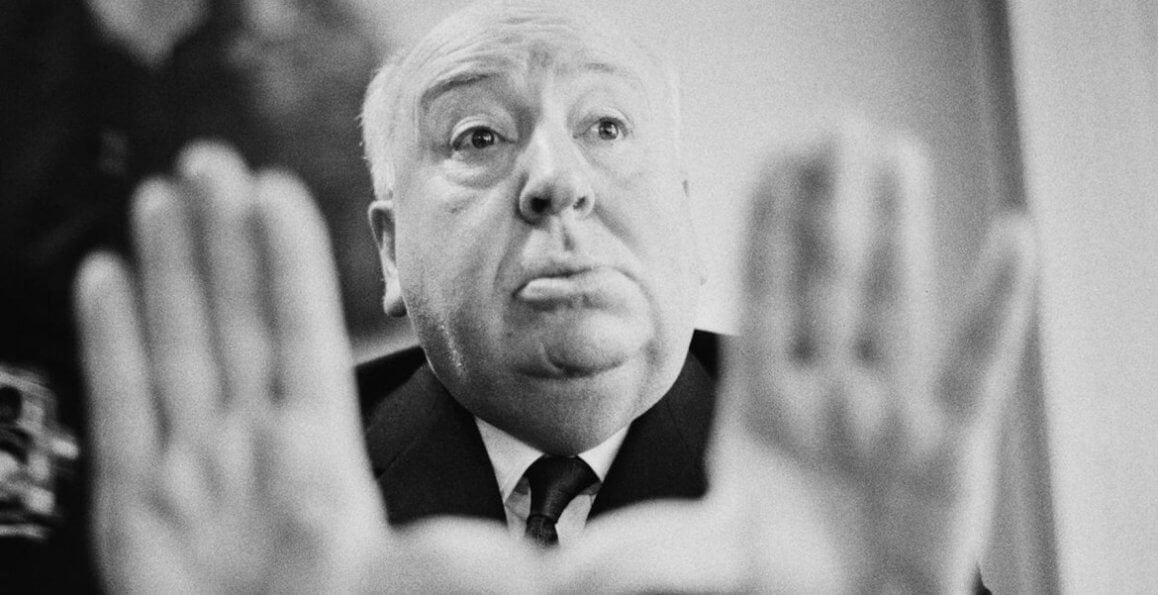
Because Alfred Hitchcock (1889-1980) was a marketing genius as well as being able to manipulate the elements of a film well (script, cast, camera game, editing ...). He was one of the first directors to explore his own image, transforming himself into a public character.
In addition, he made the habit of making ends in his own films - and the public began to wait for these easter eggs with so much anxiety that, at the end of the race, the English filmmaker decided to appear always in the beginning of the history to release the attention of the audience. It is even speculated that he is the one who created the term "master of suspense." And rightly so: no one knew how to stone the elements of this genre better than he.
Working instruments
The themes, partners, and personal dramas that the director used to build a career

1. Not afraid to innovate
If the film stars a famous actor, the public assumes that the character will not die (at least not until the end of the story). The filmmaker went against this cliché and ended up creating one of the most surprising scenes in the movie: the Janet Leigh character assassination in the shower, which takes place in the 46th minute of Psycho (1960).
2. A secret between us
The audience was an accomplice. He revealed to her precious information that the character was unaware of (and he would risk life if he did not find out in time). In The Husband Was the Guilty (1936), a little boy carries, without knowing, a package with a time bomb. He delays several times to deliver it, leaving the public gnawing at his nails of anxiety.

3. Childhood trauma
In the book Hitchcock / Truffaut, the director reveals that when he was five years old, his father sent him to the police station with a note that asked the police officer to lock him up in a cell and say, "This is what happens to naughty boys." It is not by chance that people accused unjustly of a crime are recurrent themes in their work, as in the film The Wrong Man (1956).
4. Inspired by silence
He began in the cinema as the creator of the legends that simulated dialogues in silent films. This is how he learned how to make emotions in the public even without dialogue - only with precise framing and cuts. An example? Devilish Festim (1948), about two friends who kill a colleague shortly before a party, is full of continuous scenes and disguised cuts.
5. Body and soul
In a thank-you speech, the director said he owed its success to four people: "One is a writer, one is editor, another is the mother of my daughter and the last is the best cook who ever lived." And the names of all of them are Alma Reville. His beloved wife repaired editing errors and continuity and was a screenwriter in films like Shadow of a Doubt (1943).
6. The important insignificant object
He has coined an appeal to date used by writers: the "MacGuffin." So he called any common object, which only served to give a target to the protagonist and generate suspense, as the secret microphone that causes the persecution of the hero of Intrigue International (1959). But it's irrelevant: when the plot progresses, it may even be pushed aside.
7. Mania to watch
Hitchcock took full advantage of the idea of voyeurism: the pleasure of watching others in intimate or suffering situations. It is a central element in Window Indiscreta (1954), in which the protagonist gossips the life of its neighbors and ends up discovering a murder. In other films, it made the audience watch a scene from the villain's point of view.
8. Girl of the eyes
A Body That Falls (1958), about a detective obsessed by the blonde who investigates, was one of his films that deal with fixation with women. The theme may be another reflection of the filmmaker's personal life: he loved blond actresses. Tippi Hedren, protagonist of The Birds (1963), even accused him of sexual harassment.

Nenhum comentário:
Postar um comentário